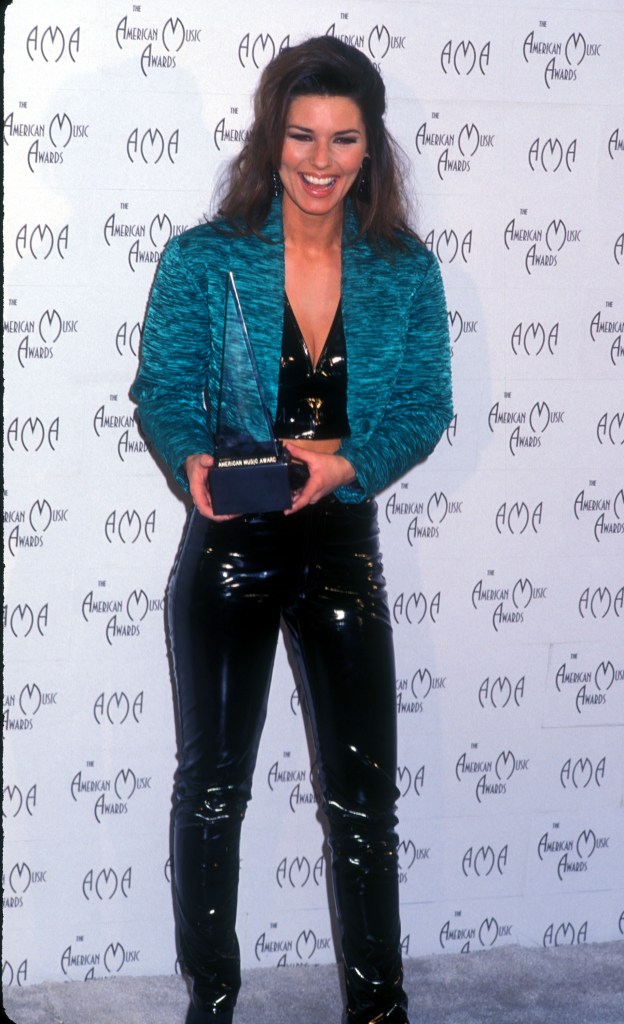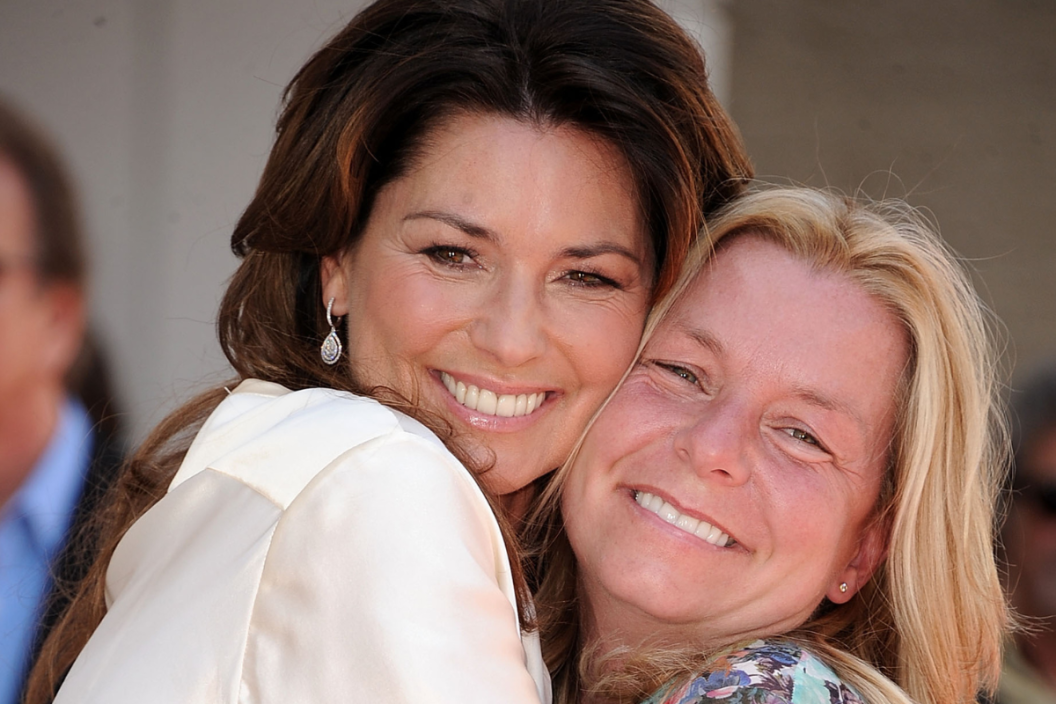It's almost difficult to imagine a time before the world knew Shania Twain's name, but before she was a global country-pop icon she was Eileen Edwards, a young woman growing up in Ontario and dreaming of becoming a star. The new Netflix documentary Not Just a Girl traces not only Twain's rise to fame, but also the roadblocks she faced as an outspoken, independent woman in the country music genre.
Videos by Wide Open Country
Twain's perseverance is showcased throughout the documentary, from a family tragedy that led the singer to become the breadwinner for her younger siblings to facing adversity from a music industry reluctant to ebrace the fearless spirit that would change country music forever.
Read on for our 6 main takeaways from Not Just a Girl.
She Related to Dolly Parton From a Young Age
Ontario is a long way from Dolly Parton's hometown of Sevierville, Tenn., but both Shania Twain and Dolly Parton have earned their "rags to riches" reputation with hard work, talent and tenacity.
Growing up poor in the mining town of Timmins, Ontario, Twain was inspired by Dolly Parton's "Coat of Many Colors," a song about Parton's own experience growing up in poverty.
Singing Rock Helped Her Develop Her Stage Presence and Songwriting

Photo by Frank Micelotta/ImageDirect
Twain got her start performing at just 8 years old when her mother began taking her to sing in bars, where she'd perform the country classics she was raised on, such as "To Daddy," written by her hero Dolly Parton. (In the documentary, Twain notes that she made sure to have 100 songs in her repertoire.) However, like many young adults, her musical taste expanded as she aged and, much to the dismay of her parents, she became interested in early '80s rock, such as Pat Benetar's "Hit Me With Your Best Shot."
Twain explained that performing rock music helped her further develop her stage presence and songwriting -- and she developed a knowledge that would serve her when she worked alongside Mutt Lange, her husband from 1993 to 2010, a producer for AC/DC, Def Leppard and more. Together, Twain and Lange wrote pop-country crossover smashes that would define an era.
"I was always such a shy singer," Twain said. "Once I started singing rock I started developing my style -- I was stretching out creatively, artistically and it was affecting my songwriting."
She Raised Her Siblings After a Family Tragedy

Shania Twain and sister attends the Shania Twain Hollywood Walk Of Fame Induction Ceremony on June 2, 2011 in Hollywood, California. (Photo by Steve Granitz/WireImage)
Twain's mother, Sharon, and stepfather, Jerry, were killed in a car accident in November of 1987. At just 22 years old, Twain took on the responsibility of caring for her younger siblings, Mark, Darryl and Carrie-Ann.
"At the time, I just really wanted to quit and get a real job," Twain recalls. "I've got kids now. I've got kids to support."
But Twain's mentor Mary Bailey told her about a singing job nearby. She made ends meet by performing at Vegas-style shows at the Deerhurst Resort in Huntsville, Ontario. As it turns out, the gig also helped prepare Twain for performing at a larger level.
"I had no idea how to sing and wear high heel shoes, for example, at the same time," Twain said. "I had to learn fast because this was my new job."
Through her time at Deerhurst, Twain realized that she couldn't give up on her talent. But it also meant balancing a full time job with being the sole provider for her family.
"I was busy rehearsing, running the kids back and forth," she said. "Before and after the show, I would go home and write. There was no other way to get ahead except working my ass off."
Nashville Didn't Know What To Do With Her -- So She Told Them

Photo by Barry King/WireImage
Twain moved to Nashville and signed her first recording contract in 1992. But her record label at the time wasn't interested in the songs Twain had written. Instead, they began searching for songs by other writers for the young artist to record for what would become her self-titled debut album.
"I was definitely coming from a spicier place as a songwriter and the A&R department just didn't think it was country enough," Twain said. "I kinda had to do a little reset on my expectations. I didn't cry about it. I accepted it. There's not really that much of my creative input in the album at all, other than the way I sang things or the way I phrased things in the studio....I had no room to experiment."
Twain and her manager at the time, Mary Bailey, also found that they weren't always taken seriously by industry leaders.
"You have to work three times as hard as the average guy in country music to get a shot," Twain said. "To be relentless was the only way."
Of course, it was only a matter of time before Twain was recording her own songs. Her 1995 album, The Woman in Me, featuring Twain co-writes "Any Man of Mine," "Whose Bed Have Your Boots Been Under" and more, was a smash success.
She Took Control of Her Image From the Very Beginning
Twain's video for "What Made You Say That" was a celebration of her sensuality and an opportunity for her to showcase her creative vision.
"That was the moment that I grabbed onto creatively and it was liberating," Twain said. "I liberated myself in so many ways -- right from that very first video."
Twain's first manager, Mary Bailey, also reflected on how Twain's music videos were an early indicator of her vision for her career.
"She may have had limitations with the music that she could record, but visually, she really could be creative in all elements," Bailey said.
Her fearless spirit also earned her a dedicated following in the LGBTQ+ comunity.
"I think one of the reasons Shania does have a huge following with the LGBTQ+ community is because of her costuming and the things that she wore, because that particular community, which I'm part of, totally relates to image, from Dorothy in The Wizard of Oz to Shania Twain," fashion designer Marc Bouwer said. "These striking images that are memorable, these are the things that we retain. These are the things that we love."
Orville Peck, who collaborated with Twain on the song "Legends Never Die," also reflected on Twain's influence.
"She reached through the stereo and made me feel safe," Peck said.
She Thought She Lost Her Voice, But She Came Back as Strong as Ever
Following the release of Twain's album Up!, Twain contracted Lyme disease, which caused extreme dizziness and blackouts and also impacted her voice.
"My voice was never the same again," Twain said. "I didn't understand it. I thought I'd lost my voice forever...I thought I'd never sing again."
As she was dealing with a health crisis, Twain also went through a painful divorce from Mutt Lange, with whom she shares a son, Eja Lange.
"The grief from that, it was similarly intense to losting my parents," Twain said. "A permanent end to so many facets of my life."
Though she initially didn't want to continue with her music career, she slowly began singing and songwriting once again.
An invitation from Lionel Richie to duet "Endless Love" with him gave Twain an extra push.
In 2017, Twain released Now, her first album of new music in 15 years. These days, she's gearing up to release more new music, which she descibes as uplifting and self-empowering.




